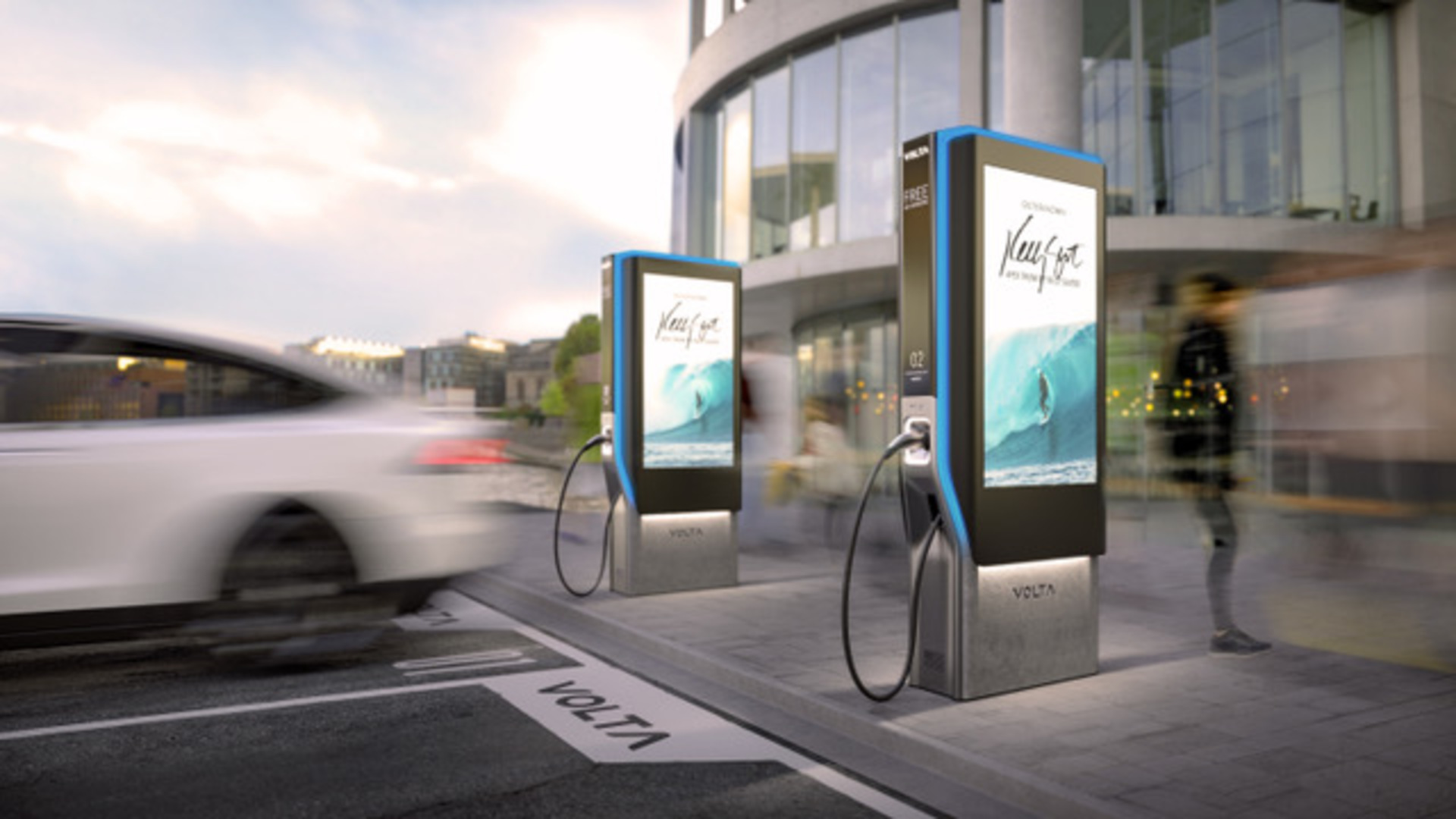Volta Has $62 Million in Funding to Keep Making Life Easier for Electric Cars
SAN FRANCISCO BUSINESS TIMES - As more electric vehicles hit U.S. roads, building an efficient, cost effective charging infrastructure is a daunting challenge. One that Scott Mercer and his company, Volta Charging, are taking on.
The U.S. electric vehicle (EV) market is gaining power in the U.S., with 350,000 sales projected in 2020 and more than 1 million in 2025, according to research group IHS Markit.
Volta is about to roll out a new model of its charging stations in eight cities with top media markets and high EV demand, from New York City to Atlanta to Denver.
“The ambition is really to go and build the infrastructure that underpins the electric vehicle transportation shift,” Mercer said. “And to go out and kill oil companies.”
For the last several years, the San Francisco company has tripled its revenue year over year and now employs 93.
In 2014, Mercer moved Volta from its original home in Hawaii to San Francisco. The move marked the culmination of Mercer’s vision for the early years — pilot the company’s business model in Hawaii and then seek out venture funding to expand across the U.S. It did not go according to plan.
When Mercer pitched venture capitalists, he emphasized that they’d spent three years developing the model in Hawaii and that they had the contacts and experience to scale out across the U.S. The response from VCs? Prove it.
Mercer’s pitch came at an inopportune time in the EV charging market. In 2013, Better Place — a company focused on building EV charging stations — declared bankruptcy. Better Place had been heralded as the forerunners in a growing market for EV infrastructure and raised over $700 million. Its demise chilled the market.
Volta’s business model differed from Better Place’s, though. For one, charging at a Volta station is free for EV drivers. The company partners with brands like Haagen-Dazs, Alaska Airlines, Nest, Netflix and others by selling advertising space on its charging stations which funds the installation and operational costs of the stations.
With its dependence on advertising, location is the other key factor for Volta. The company doesn’t just put a charging station anywhere. Volta charging stations are located at high-traffic places: malls, movie theaters and grocery stores.
Volta charging stations average eight hours of usage a day — nearly four times as much as other commercial stations. The model has proven unit-profitable, meaning that the ad revenue from each charging station exceeds the installation and operating costs: “Volta is not the largest network, but we are, by far, the most economically compelling on a unit basis,” Mercer said.
Mercer’s vision for Volta sparked in the late 2000s when he was working out of his parents’ garage in Colorado, flipping vintage cars. At the outset, Mercer saw Volta as an advertising company that was using brands and offering free charging as a way to get people talking about EVs.
In 2010, Mercer went to Hawaii, which in 2008 had passed legislation mandating commercial property owners to have EV charging stations, to start Volta. When he moved to San Francisco in 2014 he used the partnerships he’d built with commercial property owners in Hawaii to kickstart Volta’s presence. Currently, Volta has over 700 stations nationwide, including San Francisco, Los Angeles, Chicago and Hawaii.
The main challenge in offering free EV charging will be remaining profitable amid rising installation and operating costs. Most Volta stations offer Level 2 commercial charging, which cost up to $20,000 to install, according to a 2018 report from the Harvard Kennedy School. Alex Clark, a co-author of that report, said that the expectation for commercial EV stations will be at least Level 3 — which charge faster than Level 2 — and can cost upward of $50,000 to install. Volta is starting to offer Level 3 charging, and Clark said that they’d have to see much greater advertising revenue to stay profitable.
As Volta’s real estate partners have seen the benefits, like increased consumer traffic at retailers, of offering free EV charging, they’ve been willing to take on some of the installation costs in order to have more chargers at their properties — a key shift to maintain Volta’s profitability.
And VCs have come around. With $35 million raised in 2018, Volta has now received $62 million in VC funding to date. John Tough, a partner at Energize Ventures — the lead investors in Volta — said Volta’s unique model can help it adapt to changes in the EV market. “The creativity needed in this space is going to have to be much higher to meet the rising demand for EVs,” Tough said.
Click Here for Original Article - https://www.bizjournals.com/sanfrancisco/news/2019/06/20/volta-electric-vehicle-charging-station-mercer.html


